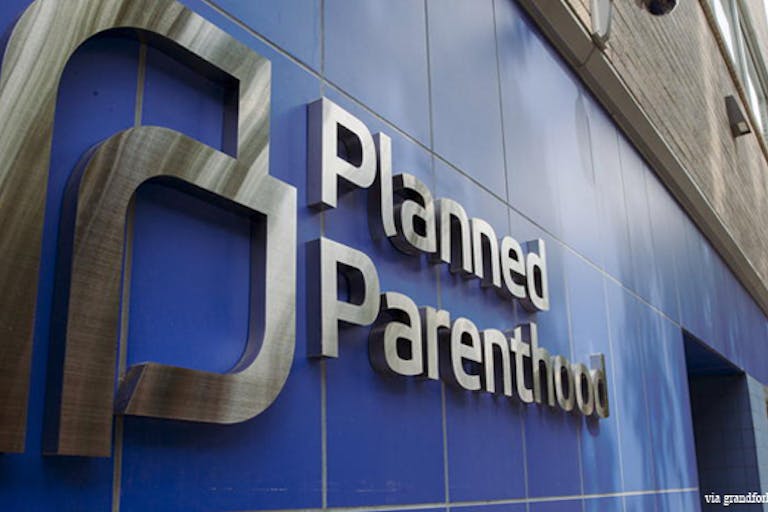
New Archbishop of Canterbury warns of danger in legalizing assisted suicide
Nancy Flanders
·
Four Iowa Planned Parenthood clinics to close after being defunded
Last week, Iowa Governor Terry Branstad signed a bill that would prevent state Medicaid money from going to Planned Parenthood or any other abortion provider. And it took just that one week for Planned Parenthood to respond by announcing that the abortion chain would be closing four of its clinics in Iowa. Susana de Baca, president and chief executive officer of Planned Parenthood of the Heartland, said facilities in Bettendorf, Burlington, Keokuk, and Sioux City will be closed. Eight other Planned Parenthood facilities throughout the state will remain open.
According to de Baca, the facilities are closing specifically because Planned Parenthood will be losing approximately $2 million in taxpayer funding, thanks to the bill signed into law by Branstad. Predictably, de Baca lamented that thousands of people would lose access to health care. Jodi Tomlonovic, executive director of the Family Planning Council of Iowa, had also opposed the bill and said the closure of the four Planned Parenthood clinics was especially devastating, as other health care clinics could not replace the care that Planned Parenthood provides.
The clinics in Burlington, Keokuk, and Sioux City will close on June 30, and while the Bettendorf clinic will cease “family planning services,” it will remain open indefinitely to provide telemedicine abortions before it closes at a later date – further proving Planned Parenthood’s ultimate focus on abortion. It’s not clear if the Bettendorf center will provide health care services as it waits to close, but it will reportedly end its birth control program. (Telemedicine abortions are the distribution of abortion pills by a doctor who usually speaks to a patient on a screen and does not see her in person. The video below describes the abortion pill process. To potentially reverse the effects of an abortion pill, see Abortion Pill Reversal and contact the 24-hour nurse-staffed hotline at 1-877-558-0333.)

While Planned Parenthood is using its typical talking point here about how women will have nowhere else to go without Planned Parenthood, the reality is that the abortion chain is vastly outnumbered by comprehensive health care clinics across Iowa, including federally qualified health care centers, community health centers, and county health offices – all of which provide health care for low-income women that Planned Parenthood is not qualified or willing to offer.
During the Iowa defunding of Planned Parenthood, legislators explained that Iowa women will have access to “family planning services at 221 clinics statewide that will expand coverage to rural women who must now make long drives to urban areas for family planning services.” Instead of leaving women behind, Iowa will spend 3.3 million dollars to ensure that women have an expanded health care network.
The reality is, Planned Parenthood not only serves a small percentage of women, but also performs only a tiny fraction of health screenings. It performs less than 2% of all clinical breast exams, less than 1% of all Pap tests, and less than 2% of all cancer screenings.
Low-income, uninsured women do have options for health care, despite what Planned Parenthood wants people to think. In fact, there are thousands more comprehensive health clinics providing comprehensive care to women than there are Planned Parenthood clinics, where health care services are extremely limited.
Moreover, Planned Parenthood was having problems in Iowa even before being defunded. In recent years, the abortion giant has been forced to close multiple clinics, largely due to a lack of demand. Apparently, women in Iowa don’t rely on Planned Parenthood that much, and why would they, when they have legitimate health care options instead, without abortion?
Hopefully, more states will follow Iowa’s lead and redirect taxpayer funding to comprehensive health clinics, where women can get real health care…instead of continuing to fund an abortion chain whose number-one priority is abortion.
Live Action News is pro-life news and commentary from a pro-life perspective.
Contact editor@liveaction.org for questions, corrections, or if you are seeking permission to reprint any Live Action News content.
Guest Articles: To submit a guest article to Live Action News, email editor@liveaction.org with an attached Word document of 800-1000 words. Please also attach any photos relevant to your submission if applicable. If your submission is accepted for publication, you will be notified within three weeks. Guest articles are not compensated (see our Open License Agreement). Thank you for your interest in Live Action News!

Nancy Flanders
·
Politics
Nancy Flanders
·
Human Rights
Angeline Tan
·
Human Rights
Bridget Sielicki
·
Human Rights
Carole Novielli
·
International
Angeline Tan
·
Analysis
Cassy Cooke
·
Activism
Cassy Cooke
·
Pop Culture
Cassy Cooke
·
International
Cassy Cooke
·
Analysis
Cassy Cooke
·